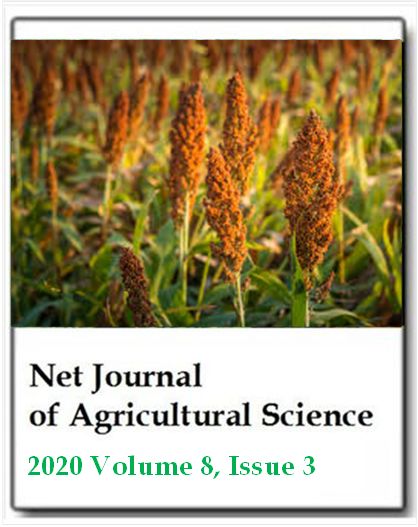Determinants of smart valley technology adoption in lowland rice farming: Evidence from Burkina Faso
Adama Ouédraogo, Nati Aïssata Delphine Bama, Boureima Tassembédo, Aminou Arouna, Elliott Doussou Yovo and Issa WonniNet Journal of Agricultural Science
Published: September 28 2020
Volume 8, Issue 3
Pages 59-66
ABSTRACT
The overall objective of this study is to identify the major factors affecting smart valley new technologies in lowland by rice farmers in Burkina Faso. Managing flood and water retention in lowland rice farming is still the biggest challenge in West Africa particularly in Burkina Faso. In order to face this challenge Africa Rice funded a project to promote this technology in Burkina Faso during 2018 and 2020. Surveys on 145 rice farmers spread in 6 villages were carried out. A Probit model was used to analyse the key factors affecting the adoption decision. The results show that women are the highest adopters (76.36%) of smart valley technology. Also, about 92.19% of the adopters have access to technical support structures (extension services, research and NGOs) compared to 7.81% of the non-adopters. The analysis show also that schooling level, rice farming experience, contact with agricultural extension and research institutes, additional cost due to the technology and the yield are key factors influencing the farmers adoption decisions. The additional cost due to smart valley construction is affecting negatively the decision to adopt it. This factor is the key to enhance the adoption rate because all the beneficiaries recognize that smart valley is able to manage drought and flood effectively; but the cost still unreachable to lowland rice farmers.
Keywords: Smart valley, adoption, Probit, rice, Burkina Faso.
Full Text PDF
ISSN: 2315-9766
